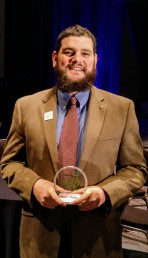October 14th is International E-Waste Day!
Electronic Waste (also known as e-waste) is one of the fastest growing waste streams. It may come as a surprise, but it is estimated that in 2021, 57.4 million tons of e-waste will be produced worldwide. Unfortunately, only 17.4% of that waste, which can contain harmful as well as rare materials, is expected to be properly recycled. Statistics like this are why the WEEE Forum, an international group dedicated to developing best practices for managing waste electrical and electronic equipment (WEEE), created International E-Waste Day.
Join SLCgreen in commemorating International E-Waste Day on October 14, 2021 by learning more about e-waste and how to properly recycle these materials.
What is E-Waste?
E-waste includes any electronic items– from cell phones to televisions– that have reached the end of their functional lives. A broken cell phone or smartwatch might feel like junk, but it is full of many precious materials such as gold, silver, copper, and lithium, that can be refurbished or recycled! Moreover, if not properly handled, electronic components can be hazardous. Electronic components often contain heavy metals including lead, mercury, cadmium, and beryllium; PVC plastic; and other harmful chemicals.
Managing e-waste can be dangerous when not taken to the proper facility. Besides making your data an easy target if old phones or computers wind up in the wrong place, e-waste can also pose a threat to the health of waste management workers. By taking care to properly dispose of your e-waste, you can protect yourself and others while also putting valuable resources to good use!
What to do with E-Waste in Salt Lake City?
Navigating all the options for proper household waste management can be tricky. Luckily, if you live in Salt Lake City, there are many ways to recycle your e-waste:
- Call 2 Haul: Salt Lake City residents can schedule a bulky waste pick up once a year through the Call 2 Haul program. Call 2 Haul will pick up bulky items that don’t fit or belong in your weekly curbside containers including e-waste, and make sure that the materials are properly handled and correctly diverted.
- Salt Lake Valley Landfill Household Hazardous Waste Drop Off: The Salt Lake Valley Landfill accepts hazardous waste materials including e-waste, paint, oil, gasoline, antifreeze, batteries, propane, fluorescents, and chemicals in the Household Hazardous Waste drop off.
- Specialty Recycling Services: Some businesses and specialty recyclers are able to accept e-waste for recycling and disposal. Check out our Specialty Recycling Services page for more resources for materials that don’t belong in your recycling or trash.
Whether you’re clearing out old tech, or just upgrading your phone, take the time to dispose of your e-waste safely. Remembering to recycle e-waste will help protect the environment from harmful chemicals and can save valuable resources for reuse!
In honor of International E-Waste Day, share this information with your networks to spread the word about what to do with electronic waste!










